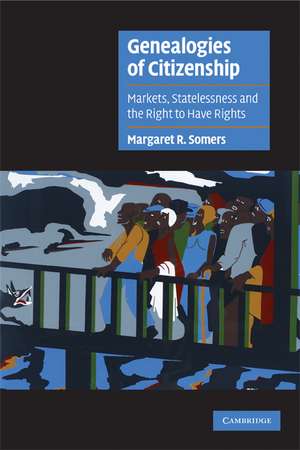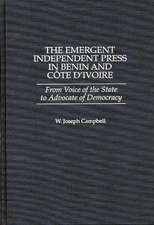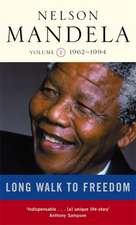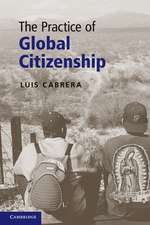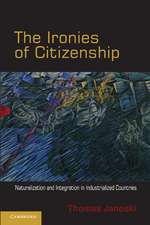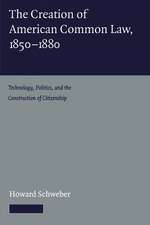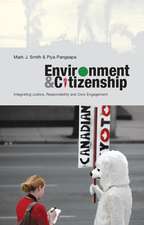Genealogies of Citizenship: Markets, Statelessness, and the Right to Have Rights: Cambridge Cultural Social Studies
Autor Margaret R. Somersen Limba Engleză Paperback – 23 iul 2008
| Toate formatele și edițiile | Preț | Express |
|---|---|---|
| Paperback (1) | 204.55 lei 3-5 săpt. | |
| Cambridge University Press – 23 iul 2008 | 204.55 lei 3-5 săpt. | |
| Hardback (1) | 757.52 lei 6-8 săpt. | |
| Cambridge University Press – 23 iul 2008 | 757.52 lei 6-8 săpt. |
Din seria Cambridge Cultural Social Studies
-
 Preț: 199.49 lei
Preț: 199.49 lei -
 Preț: 137.92 lei
Preț: 137.92 lei -
 Preț: 161.64 lei
Preț: 161.64 lei -
 Preț: 156.48 lei
Preț: 156.48 lei -
 Preț: 137.74 lei
Preț: 137.74 lei -
 Preț: 282.65 lei
Preț: 282.65 lei -
 Preț: 327.51 lei
Preț: 327.51 lei -
 Preț: 318.43 lei
Preț: 318.43 lei -
 Preț: 347.12 lei
Preț: 347.12 lei -
 Preț: 328.27 lei
Preț: 328.27 lei -
 Preț: 310.45 lei
Preț: 310.45 lei -
 Preț: 205.41 lei
Preț: 205.41 lei -
 Preț: 239.86 lei
Preț: 239.86 lei -
 Preț: 416.87 lei
Preț: 416.87 lei -
 Preț: 403.66 lei
Preț: 403.66 lei -
 Preț: 284.01 lei
Preț: 284.01 lei -
 Preț: 283.25 lei
Preț: 283.25 lei -
 Preț: 284.98 lei
Preț: 284.98 lei -
 Preț: 311.78 lei
Preț: 311.78 lei -
 Preț: 315.87 lei
Preț: 315.87 lei - 8%
 Preț: 424.76 lei
Preț: 424.76 lei - 11%
 Preț: 695.06 lei
Preț: 695.06 lei -
 Preț: 291.64 lei
Preț: 291.64 lei - 11%
 Preț: 693.51 lei
Preț: 693.51 lei -
 Preț: 290.54 lei
Preț: 290.54 lei - 14%
 Preț: 695.54 lei
Preț: 695.54 lei - 14%
 Preț: 734.30 lei
Preț: 734.30 lei -
 Preț: 348.74 lei
Preț: 348.74 lei -
 Preț: 321.65 lei
Preț: 321.65 lei - 11%
 Preț: 691.14 lei
Preț: 691.14 lei -
 Preț: 390.61 lei
Preț: 390.61 lei - 14%
 Preț: 761.01 lei
Preț: 761.01 lei -
 Preț: 382.77 lei
Preț: 382.77 lei
Preț: 204.55 lei
Nou
Puncte Express: 307
Preț estimativ în valută:
39.14€ • 40.87$ • 32.39£
39.14€ • 40.87$ • 32.39£
Carte disponibilă
Livrare economică 14-28 martie
Preluare comenzi: 021 569.72.76
Specificații
ISBN-13: 9780521793940
ISBN-10: 0521793947
Pagini: 362
Ilustrații: 8 b/w illus.
Dimensiuni: 152 x 227 x 20 mm
Greutate: 0.57 kg
Ediția:1
Editura: Cambridge University Press
Colecția Cambridge University Press
Seria Cambridge Cultural Social Studies
Locul publicării:Cambridge, United Kingdom
ISBN-10: 0521793947
Pagini: 362
Ilustrații: 8 b/w illus.
Dimensiuni: 152 x 227 x 20 mm
Greutate: 0.57 kg
Ediția:1
Editura: Cambridge University Press
Colecția Cambridge University Press
Seria Cambridge Cultural Social Studies
Locul publicării:Cambridge, United Kingdom
Cuprins
1. Theorizing citizenship rights and statelessness; Part I. Citizenship Imperilled: How Marketization Creates Social Exclusion, Statelessness, and Rightlessness: 2. Genealogies of Katrina: the unnatural disasters of market fundamentalism, racial exclusion, and statelessness; 3. Citizenship, statelessness, nation, nature, and social exclusion: Arendtian lessons in losing the right to have rights; Part II. Historical Epistemologies of Citizenship: Rights, Civil Society, and the Public Sphere: 4. Citizenship troubles: genealogies of struggle for the soul of the social; 5. What's political or cultural about political culture and the public sphere? Toward a historical epistemology of concept formation; Part III. In Search of Civil Society and Democratic Citizenship: Romancing the Market, Reviling the State: 6. Let them eat social capital: how marketizing the social turned Solidarity into a bowling team; 7. Fear and loathing of the public sphere: how to unthink a knowledge culture by narrating and denaturalizing Anglo-American citizenship theory.
Recenzii
'Margaret Somers has an astonishing variety of disciplinary competences and constantly poses new questions and working on parallel fields in order to build a network of concepts and arguments. The strong connection that she establishes between conceptual analysis and a practical commitment to the emergence of new democratic forms and republican citizenship is an essential aspect of the creative character of her work.' Etienne Balibar, Université de Paris X Nanterre, and University of California, Irvine
'In these wide-ranging essays, glistening with brilliant turns of phrase about our contemporary social condition, Margaret Somers brings together normative citizenship theory, sociological analysis, history and political economy at the highest level of synthesis. Citizenship is not only a boundary-marker between polities; the loss of 'the right to have rights' does not only mark the refugee, the asylum seeker and the undocumented worker, it also stigmatizes the others within societies by social exclusion. Focusing on the events surrounding Hurricane Katrina, Somers shows how 'statelessness' became the condition of citizens of the USA at the beginning of the twenty-first century. To retrieve 'the right to have rights' for all means going beyond the 'romance of the market' and 'reviling the state'. Seyla Benhabib, Yale University
'Genealogies of Citizenship might well provide the definitive sociological and political critique of the era of market fundamentalism. Building on the insights of Karl Polanyi, T. H. Marshall, and Hannah Arendt, Margaret Somers demonstrates that civil society rests on the 'right to have rights'. But this right has been swept away by three decades of market-dominated discourse and policies. Somers brilliantly shows how Hurricane Katrina's devastating impact on New Orleans' African American community was the culmination of this dynamic.' Fred Block, University of California, Davis
'Geneologies of Citizenship offers many intellectual rewards. Somers provides, at once, an incisive analytic for approaching the internal exclusions of liberal democratic societies, a sophisticated meditation on the career and meanings of the citizenship concept in social theory, and an eloquent indictment of a 'market fundamentalism' which, she shows, ultimately subverts citizenship's highest aspirations.' Linda Bosniak, Rutgers University School of Law
'Margaret Somers is a renowned polymath, and in Genealogies of Citizenship she obliterates common divisions among sociology, history, moral philosophy, and politics to fashion an exhilarating new form of social inquiry that simultaneously advances core debates long-standing in social theory and offers a searching mediation on contemporary citizenship in extremis.' Charles Camic, Northwestern University
'Genealogies of Citizenship is a stunning achievement that confirms what we have long known – Margaret Somers is a brilliant social theorist of extraordinary distinction, one of the best thinkers of her generation. The originality and ambition of her commitment to rebuilding social theory grows from the most careful and searching of contextual knowledge. Likewise, she challenges historians of citizenship, democracy, and political economy to think their projects anew. Individually the chapters are a dazzling series of interventions; together they compose an extraordinary corpus.' Geoff Eley, University of Michigan, Ann Arbor
'With extraordinary erudition and theoretical acuity, Margaret Somers examines the dominant ideas that link many of us together as a community, and marginalize others of us. She argues that the rise of the ideology of market fundamentalism is an assault on democratic rights. Nor is the assault a mere abstraction. Political ideas are embedded in legal practices and economic and social relations. Market fundamentalism is thus a profound threat to democratic possibilities.' Frances Fox Piven, City University of New York
'The contributions Margaret Somers has made to our understanding of citizenship and rights are legion. Written with a sense of urgency, and directed to publics beyond her discipline, Genealogies of Citizenship continues her quest to build knowledge that is historical and analytical, empirical and ethical. Concerned with current threats to the standing of citizens, the book offers a timely plea to appreciate and defend the public sphere against depoliticization.' and market pressures, lest democratic institutions and human dignity erode.' Ira Katznelson, Columbia University
'We don't need to rush to Tibet to find a socially-excluded citizenry struggling for basic human rights. Margaret Somers reveals many examples right here in the U.S. Gulf Coast after Katrina, in the dismantling of the welfare state, in the complicity of capital and public policy. A brilliant work of theory and history, Genealogies of Citizenship re-examines the shifting relationship between state, civil society, the market, and ideology through the analytic of race, gender, and class to produce the most provocative, comprehensive, and original contribution to a social theory of citizenship and rights since Hannah Arendt.' Robin D. G. Kelley, author of Freedom Dreams: The Black Radical Imagination
'Margaret Somers has written a profoundly important book. One of the great achievements of the past two centuries is the expansion of democratic citizenship. Apologists for market fundamentalism treat its erosion as a minor detail and even a benefit. Somers' book is a brilliant corrective.' Robert Kuttner, co-editor, The American Prospect and author, Everything for Sale
'This book is required reading for anyone interested in the consequences of neo-liberalism for the redefinition of social boundaries. With characteristic elegance, breadth, and theoretical mastery, Somers develops a detailed and complex analysis of processes of social exclusion and inclusion. Knowledge cultures, narratives and the law figure prominently in this new account of the redefinition of social citizenship. A tour de force that will be long remembered …' Michele Lamont, author of The Dignity of Working Men: Morality and the Boundaries of Race, Class, and Immigration
'Disinterring histories of the market-fundamentalist present, this is a devastatingly trenchant, yet profoundly creative, critique of privatized citizenship. Reclaiming the right to have rights, Somers puts critical social theory to work in what amounts to a radical new vision for social justice and progressive politics.' Jamie Peck, University of British Columbia
'Margaret Somers' Genealogies of Citizenship is a profound and original defense of the moral ideal of socially inclusive democratic citizenship. It combines a sophisticated theoretical and philosophical defense of the normative foundations of this ideal with a range of compelling sociological explorations of the conditions for its robust sustainability. The book's central provocative thesis - that under-regulated, expansionary markets constitute a deep threat to this form of citizenship - is powerfully and convincingly argued. It deserves to be widely read and debated by anyone worried about the future of democratic society.' Erik Olin Wright, University of Wisconsin-Madison
'In eloquent essays Margaret Somers sheds new light on citizenship as a central concern of modern political life. She shows the tensions, aporias, repressed possibilities, and potential vitality in everyday usage and scholarly conceptualization alike. This is a book scholars have been waiting for and one that should be widely read.' Craig Calhoun, New York University
'Somers has provided us with a broad, multi-faceted and immensely inspiring provocative account of modern 'western' societies' problems in combining citizenship rights and market principles which should be required reading not just for those of us interested in such questions, but for anyone who intends to use the words 'social capital' or 'civil society' in future.' Andreas Fahrmeir, Sehepunkte
'In these wide-ranging essays, glistening with brilliant turns of phrase about our contemporary social condition, Margaret Somers brings together normative citizenship theory, sociological analysis, history and political economy at the highest level of synthesis. Citizenship is not only a boundary-marker between polities; the loss of 'the right to have rights' does not only mark the refugee, the asylum seeker and the undocumented worker, it also stigmatizes the others within societies by social exclusion. Focusing on the events surrounding Hurricane Katrina, Somers shows how 'statelessness' became the condition of citizens of the USA at the beginning of the twenty-first century. To retrieve 'the right to have rights' for all means going beyond the 'romance of the market' and 'reviling the state'. Seyla Benhabib, Yale University
'Genealogies of Citizenship might well provide the definitive sociological and political critique of the era of market fundamentalism. Building on the insights of Karl Polanyi, T. H. Marshall, and Hannah Arendt, Margaret Somers demonstrates that civil society rests on the 'right to have rights'. But this right has been swept away by three decades of market-dominated discourse and policies. Somers brilliantly shows how Hurricane Katrina's devastating impact on New Orleans' African American community was the culmination of this dynamic.' Fred Block, University of California, Davis
'Geneologies of Citizenship offers many intellectual rewards. Somers provides, at once, an incisive analytic for approaching the internal exclusions of liberal democratic societies, a sophisticated meditation on the career and meanings of the citizenship concept in social theory, and an eloquent indictment of a 'market fundamentalism' which, she shows, ultimately subverts citizenship's highest aspirations.' Linda Bosniak, Rutgers University School of Law
'Margaret Somers is a renowned polymath, and in Genealogies of Citizenship she obliterates common divisions among sociology, history, moral philosophy, and politics to fashion an exhilarating new form of social inquiry that simultaneously advances core debates long-standing in social theory and offers a searching mediation on contemporary citizenship in extremis.' Charles Camic, Northwestern University
'Genealogies of Citizenship is a stunning achievement that confirms what we have long known – Margaret Somers is a brilliant social theorist of extraordinary distinction, one of the best thinkers of her generation. The originality and ambition of her commitment to rebuilding social theory grows from the most careful and searching of contextual knowledge. Likewise, she challenges historians of citizenship, democracy, and political economy to think their projects anew. Individually the chapters are a dazzling series of interventions; together they compose an extraordinary corpus.' Geoff Eley, University of Michigan, Ann Arbor
'With extraordinary erudition and theoretical acuity, Margaret Somers examines the dominant ideas that link many of us together as a community, and marginalize others of us. She argues that the rise of the ideology of market fundamentalism is an assault on democratic rights. Nor is the assault a mere abstraction. Political ideas are embedded in legal practices and economic and social relations. Market fundamentalism is thus a profound threat to democratic possibilities.' Frances Fox Piven, City University of New York
'The contributions Margaret Somers has made to our understanding of citizenship and rights are legion. Written with a sense of urgency, and directed to publics beyond her discipline, Genealogies of Citizenship continues her quest to build knowledge that is historical and analytical, empirical and ethical. Concerned with current threats to the standing of citizens, the book offers a timely plea to appreciate and defend the public sphere against depoliticization.' and market pressures, lest democratic institutions and human dignity erode.' Ira Katznelson, Columbia University
'We don't need to rush to Tibet to find a socially-excluded citizenry struggling for basic human rights. Margaret Somers reveals many examples right here in the U.S. Gulf Coast after Katrina, in the dismantling of the welfare state, in the complicity of capital and public policy. A brilliant work of theory and history, Genealogies of Citizenship re-examines the shifting relationship between state, civil society, the market, and ideology through the analytic of race, gender, and class to produce the most provocative, comprehensive, and original contribution to a social theory of citizenship and rights since Hannah Arendt.' Robin D. G. Kelley, author of Freedom Dreams: The Black Radical Imagination
'Margaret Somers has written a profoundly important book. One of the great achievements of the past two centuries is the expansion of democratic citizenship. Apologists for market fundamentalism treat its erosion as a minor detail and even a benefit. Somers' book is a brilliant corrective.' Robert Kuttner, co-editor, The American Prospect and author, Everything for Sale
'This book is required reading for anyone interested in the consequences of neo-liberalism for the redefinition of social boundaries. With characteristic elegance, breadth, and theoretical mastery, Somers develops a detailed and complex analysis of processes of social exclusion and inclusion. Knowledge cultures, narratives and the law figure prominently in this new account of the redefinition of social citizenship. A tour de force that will be long remembered …' Michele Lamont, author of The Dignity of Working Men: Morality and the Boundaries of Race, Class, and Immigration
'Disinterring histories of the market-fundamentalist present, this is a devastatingly trenchant, yet profoundly creative, critique of privatized citizenship. Reclaiming the right to have rights, Somers puts critical social theory to work in what amounts to a radical new vision for social justice and progressive politics.' Jamie Peck, University of British Columbia
'Margaret Somers' Genealogies of Citizenship is a profound and original defense of the moral ideal of socially inclusive democratic citizenship. It combines a sophisticated theoretical and philosophical defense of the normative foundations of this ideal with a range of compelling sociological explorations of the conditions for its robust sustainability. The book's central provocative thesis - that under-regulated, expansionary markets constitute a deep threat to this form of citizenship - is powerfully and convincingly argued. It deserves to be widely read and debated by anyone worried about the future of democratic society.' Erik Olin Wright, University of Wisconsin-Madison
'In eloquent essays Margaret Somers sheds new light on citizenship as a central concern of modern political life. She shows the tensions, aporias, repressed possibilities, and potential vitality in everyday usage and scholarly conceptualization alike. This is a book scholars have been waiting for and one that should be widely read.' Craig Calhoun, New York University
'Somers has provided us with a broad, multi-faceted and immensely inspiring provocative account of modern 'western' societies' problems in combining citizenship rights and market principles which should be required reading not just for those of us interested in such questions, but for anyone who intends to use the words 'social capital' or 'civil society' in future.' Andreas Fahrmeir, Sehepunkte
Notă biografică
Descriere
This book is an ambitious intertwining of multidisciplinary themes about citizenship, social recognition and rights.
